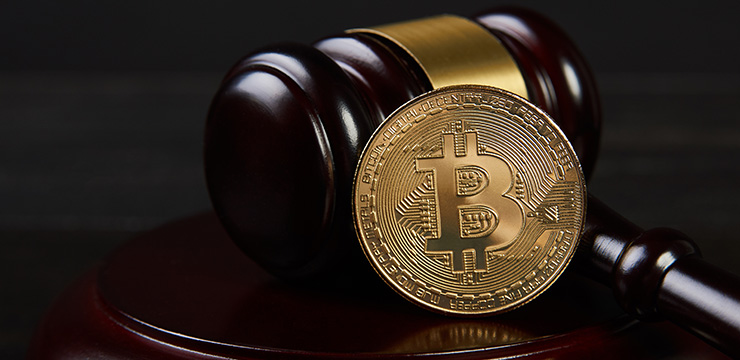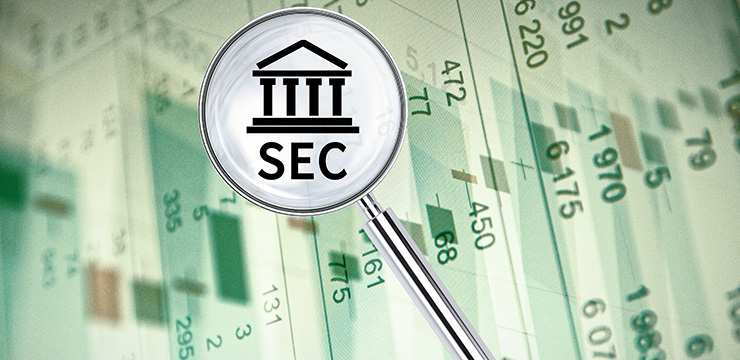As we previously discussed, the SEC suffered a rare defeat in Securities and Exchange Commission v. Blockvest, LLC et al. on November 27, when Judge Curiel of the U.S. District Court for the Southern District of California issued a denial (the “November Order”) of its motion for a preliminary injunction against Defendants’ future violations of Section 17(a) of the Securities Act of 1933 (“Section 17(a)”), despite manifest evidence of fraudulent representations in the Defendants’ website postings. The November Order attracted intense scrutiny and on December 17, the SEC moved for partial reconsideration of the November Order. Last week, on February 14, the court granted, in part, the SEC’s motion for reconsideration (the “February Order” and, together with the November Order, the “Orders”), relying on purported new evidence and an argument that the court apparently had overlooked. It is fair to ask whether the new evidence motivated the reversal.

As Judge Curiel recited, under the Federal Rules of Civil Procedure, a motion for reconsideration is appropriate, among other reasons, if the district court is “presented with newly discovered evidence.” Judge Curiel stated that the standard for granting a preliminary injunction requires the SEC to show: “(1) a prima facie case of previous violations of federal securities laws, and (2) a reasonable likelihood that the wrong will be repeated.” Based upon these standards, the court concluded that reconsideration in this case was warranted “based upon a prima facie showing of Defendants’ past securities violation and newly developed evidence which support the conclusion that there is a reasonable likelihood of future violations.” However, it is not clear what “newly developed evidence” formed the basis for this conclusion.
In applying the Howey test to the tokens offered by Blockvest, the court agreed with the SEC that “the Howey test is unquestionably an objective one.” The court disputed the SEC’s assertion that in the November Order the court had applied a “subjective test” by relying solely on the beliefs of some individual investors. Rather, the court stated that it had “objectively inquire[d] into the ‘terms of promotional materials, information, economic inducements or oral representations at the seminars, or in other words, an inquiry into the ‘character of the instrument or transaction offered’ to the ‘purchasers.’”
The court emphasized that in the November Order it had denied the motion for a preliminary injunction “because there were disputed factual issues as to the nature of the investment offered to alleged investors.” Nonetheless, the court acknowledged that in denying the SEC’s motion for a preliminary injunction, it did not “directly address” an alternate theory originally presented by the SEC that the promotional materials presented on Defendants’ website, in the whitepaper posted online, and on social media accounts concerning the ICO of the token constituted an offer of unregistered securities that contained materially false statements and therefore violated Section 17(a). The court again applied the Howey test to find that the tokens being offered were securities. The court also rejected the defendants’ arguments that applied state law to interpret “offer” narrowly to require a manifestation of an intent to be bound, finding that “offer” is broadly defined under the securities laws.
The court also found that the SEC had satisfied the required showing that there is a reasonable likelihood of future violations, one of the elements of injunctive relief. In support of its ruling, the court cited the misrepresentations in Defendants’ website postings that had been detailed in the November Order and which were manifestly fraudulent. Based upon this information, addressed by the SEC in supplemental briefing, the court granted partial reconsideration of the November Order.
Also factored into the February Order were the findings that defense counsel had moved to withdraw as counsel because “the firm found it necessary to terminate representation due to, inter alia, Defendants instructing counsel to file certain documents that counsel could not certify under Rules of Civil Procedures 11… and Defendants have yet to find substitute counsel.” The court stated its concerns that Defendants would resume their prior alleged fraudulent conduct, in light of its order allowing defense counsel to withdraw.
Given the severity of the fraudulent representations as alleged in the SEC’s action, which included false claims of approval by federal regulators and a wholly fabricated federal agency, it was surprising that the court had originally denied the SEC’s request for a preliminary injunction; the need to shut down ongoing fraud and protect investors often drives a court’s rulings on requests for interim relief in these cases. It appears that in reversing itself, the court rethought its reasoning based on the information and arguments that the SEC had originally presented. In one telling ruling in the new decision, the court declined to accept new arguments raised by defendants in opposition to the motion for reconsideration because they had not previously raised them. It appears that the SEC can shrug off its original loss and continue to seek to shut down this alleged fraud with all the power of the federal securities laws.








